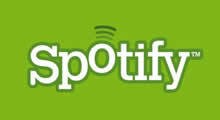
As we predicted, Spotify yesterday announced that they were opening and improving upon their API and offering apps from within the Spotify software to give users more ways to explore music. Whilst some are heralding this as great news – as being able to find Last.fm recommended bands to listen to an immediately stream from will be very useful for music fans – I’m not sure the news is quite so impressive for everyone.
Firstly, whilst the Last.fm app is very useful – I’m not sure I see the benefit of allowing brands such as Rolling Stone (or anyone with a budget to build an app) to get inside Spotify and be able to dictate music taste as they did a decade ago. There has been an explosion of music in the last decade and this is due to both the ease of recording with modern computers, but also the opening up of the recommendation game. Whereas people’s choice of music had be prescribed to them through music magazines such as NME in the past, you could now explore a whole new world of music through very niche music blogs. Music discovery became distributed, and thanks to (old) MySpace, or more recently Bandcamp, Soundcloud, WordPress, and Tumblr – anyone can be both producer or critic. The brand was suddenly less important and that was a good thing.
I was excited about the opened API and apps from Spotify – it is great to be able to see lyrics from TuneWiki, find songs to match your mood with MoodAgent, or find upcoming shows with SongKick – they are plugging in sources and content and bringing them together in a single place. Great.
The problem, however, is that with apps Spotify looks less like the music streaming app that plugged into the open web, and more like a walled garden that is excluding independent sources – Rolling Stone and The Guardian have the money to build apps for every platform, but independent bloggers do not. If people move from the open web to Spotify for their music discovery (not just their music playing), then what will happen to the niche blogs? Even more important, however, is what will happen to the new and emerging bands that do not have their music on Spotify? With the market penetration that Spotify has deservedly won over the years – do you have to be on Spotify to be appreciated as a band? After creating a Spotify playlist this week for a friend’s blog – Spotify has a long, long way to go before being a “universal music catalogue” – around half of the tracks I was looking for were not available on the service, but were available on Bandcamp, Soundcloud, or blogs. If you want to be truly universal you need to build your catalogue *from* the web like Ex.fm, not walled away and separate from it.

